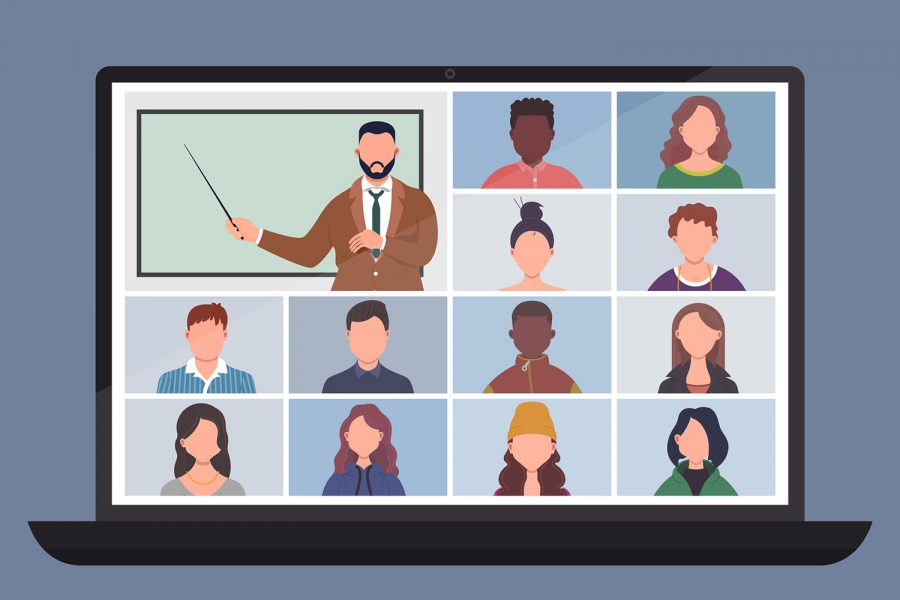Opinion | Online proctoring harms more than helps
It’s important to make sure testing is fair with remote learning, but using online proctoring services does more harm than good.
February 18, 2021
With COVID-19, professors needed to get creative with online learning. One of the ways many courses handled this transition with testing is using online proctoring services. Although these proctoring services are meant to hold students to a high academic standard and prevent cheating, they often do more harm than good.
Notoriously, Proctorio has caused students unnecessary stress and trouble when testing, out of no fault of their own.
While taking what was meant to be a two-hour test, I was logged off after 20 minutes when my email popped up in the corner of the exam, despite the system being designed to block all notifications and having them turned off as well. After another 20 minutes of me trying to contact Proctorio, I was let back in with only 10 additional minutes to finish the test.
Many students are already under an immense amount of stress dealing with the fear and uncertainty of the COVID-19 pandemic while trying to maintain their grades, jobs, and extracurriculars. We are all living through a tough and unusual time, and we shouldn’t be pretending things are normal when it comes to school.
It is no surprise a recent study came out revealing many college students have been experiencing high-stress levels during the pandemic. Over one-third of those involved in the study reported they are dealing with emotional distress because of COVID-19.
Additionally, many students run into problems using these online proctoring systems that could cause unnecessary stress while testing.
Lilly Sherman, an undergraduate student studying health and human physiology, and has experienced several unfavorable encounters with Proctorio.
“The worst of my Proctorio experiences happened when my dad called me in the middle of a test. I didn’t realize that if you interact with the notification it logs you out, no one had told me that, so I tried to get rid of it and it logged me out of the test,” Sherman said. “After that I was flustered trying to contact my teacher and Proctorio. I had the chance to finish my test, but definitely wasn’t able to perform at my best.”
According to a recent study that surveyed students’ feelings toward online proctored exams, only one-third of the students involved reported having access to a space that is comfortable and without distractions for testing. Additionally, the study found over three-quarters of the students felt dissatisfied with their online proctoring experiences. Similarly, most of those involved in the study reported they would be reluctant to choose online proctoring if it were optional.
With such a significant number of students not having access to a comfortable testing space, it doesn’t make sense to increase stress levels by enforcing online proctoring.
Open-note tests — some professors set a time limit so students must be familiar with the material ahead of time and don’t have time to look up every answer — are a much more productive option for testing at this time. They allow students to have access to the same information and can alleviate some of the unnecessary stressful situations that can happen with online proctoring.
With the majority of courses being online, many students are having to put in the majority of the work to learn the material on their own. Under these circumstances, it makes more sense to give students access to their notes and books while testing.
Columns reflect the opinions of the authors and are not necessarily those of the Editorial Board, The Daily Iowan, or other organizations in which the author may be involved.














